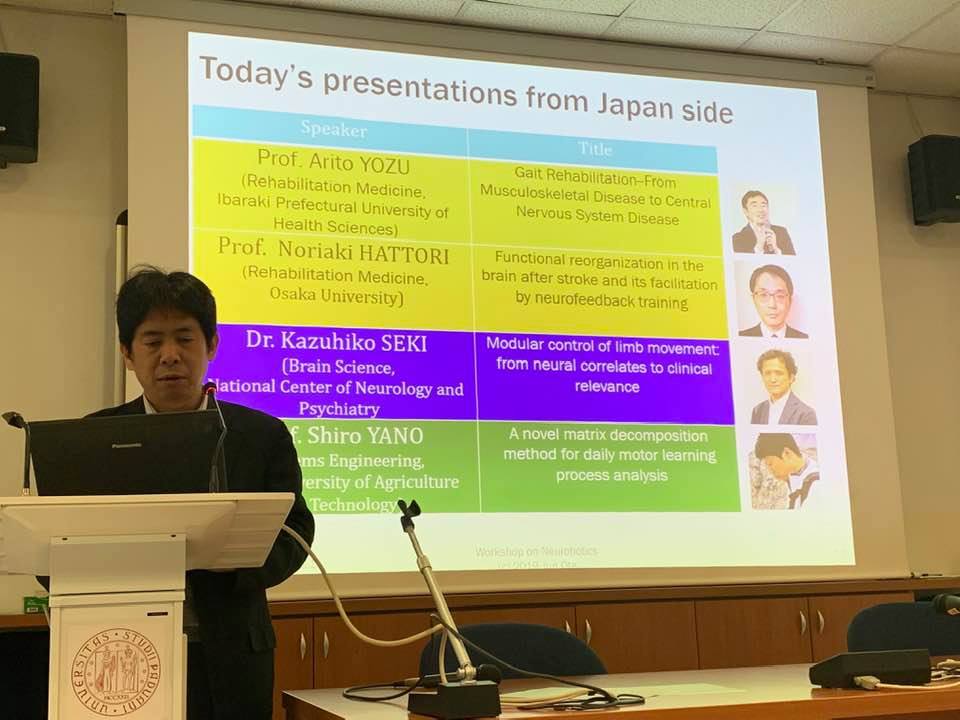Italy-Japan Workshop on NEUROROBOTICS

University of Padova
Sala Antonio Lepschy
11 April 2019
Neurorobotics is an innovative discipline that combines neuroscience, robotics and artificial intelligence. It deals with the study and application of artificial systems interconnected, or inspired by natural neurological systems; for example algorithms that function as the brain does, or intelligent systems connected to the human body, and which can receive commands from the body itself or from the brain of a person.
Neurorobotics is based on the idea that the brain is embodied in a body and that the body is immersed in the environment. Therefore, the emphasis of neurorobotics is always on real systems operating in the real physical world, rather than on systems that operate only in a simulated environment.
The IAS-Lab (Intelligent Autonomous Systems Laboratory) of the University of Padua is studying new control paradigms for exoskeletons (wearable robots) through a non-invasive hybrid interface controlled by muscular activity and by an intelligent autonomous system. The innovative approach is based on the use of hybrid human machine interfaces (hHMI), which will allow to identify the intentions of the user quickly and safely by a mutual interaction between human and robotic intelligence. The development of interfaces at the neuro-muscular level will allow a more intuitive control of the exoskeleton, which will be experienced as a natural extension of the human body. In a shared-control approach, the user will be in charge of sending high-level commands to inform the system to move to a specific object, while low-level operations, such as avoiding obstacles or fine-tuning the movement to grip on the object, will be charged to robotic intelligence.












